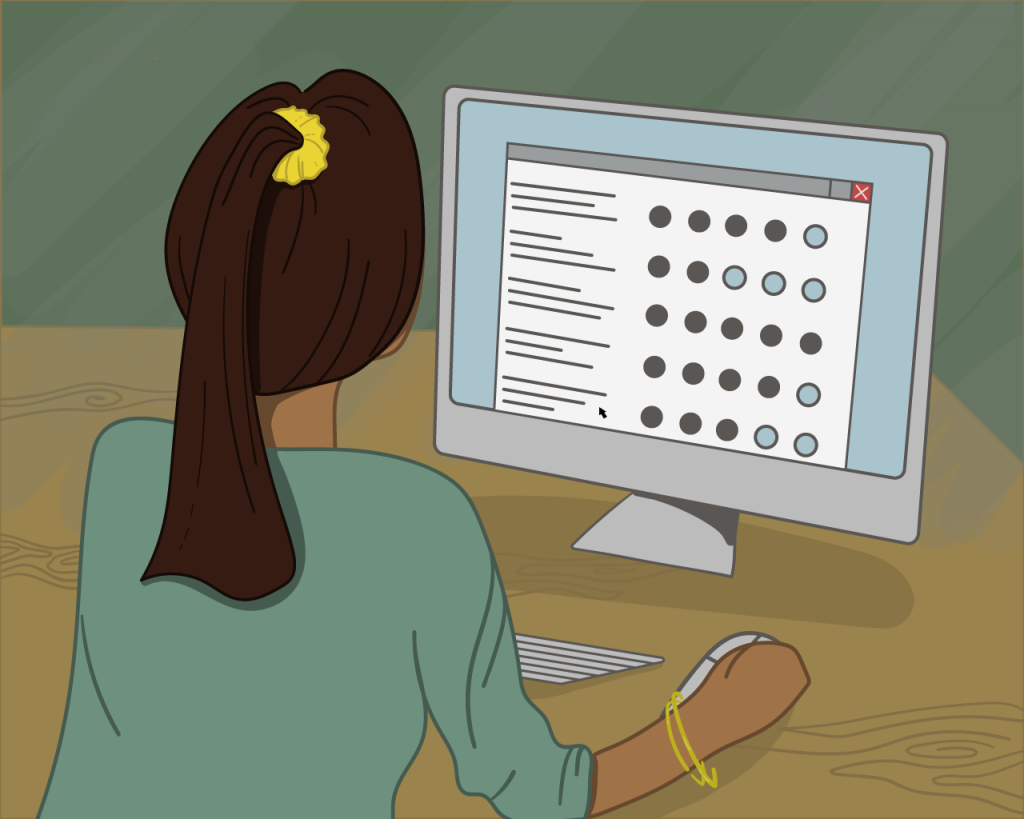
The Binghamton University Campus Citizen Review Board (CCRB) recently sent out a survey to students and staff inquiring about community safety and policing.
The CCRB, an initiative started by BU President Harvey Stenger, focuses on generating suggestions for targeting structural racism at BU. This survey is modeled after a similar survey conducted by the Graduate Workers Against Institutionalized Racism (GWAIR). The CCRB’s survey is specific to the BU community in order to more accurately understand the concerns regarding safety and policing at BU with the aim of formulating recommendations to fix such concerns.
Hannah Jones, a fourth-year graduate student studying history, hopes that this survey facilitates communication within the BU community.
“The CCRB Outreach Subcommittee aims to create an open dialogue with the [BU] community, and this survey is one of the first steps,” Jones wrote in an email. “Our immediate goal is to circulate the survey as widely as possible, review the aggregated data and begin addressing the community’s concerns through a targeted recommendation to [Stenger]. The results will be shared with the board and considered in conjunction with the research done by the other subcommittees.”
Jones wishes to see empowerment arise from the CCRB as a result of this survey.
“I would like to see the board be a catalyst for changes to policing on campus that ultimately empower the community and make everyone feel safer,” Jones wrote. “I see the board providing oversight to police arrests to prevent racial bias, making structural changes to the police policies and procedures to mitigate the use of force, increasing resources for mental health and serving as a channel for students, faculty and staff to express their concerns about policing to the administration outside of the formal complaint process.”
The CCRB is composed of six subcommittees each focusing on individual recommendations, including mental health, arrest records, selection and training, policies and procedures, community policing and complaints and community outreach and engagement.
Karen Jones, vice president of diversity, equity and inclusion, stated that each subcommittee will provide recommendations.
“We are continuing to steadily move to meet the charge of the committee,” Jones wrote in an email. “Each committee will provide recommendations as part of their review to date. For example, we have provided one recommendation to assist with the campus’ response to mental health crisis situations.”
Jones added that the CCRB has been working to actively engage members on campus.
“In addition to the survey, the Outreach Subcommittee has reached out to student organizations directly to broaden and strengthen our engagement with the campus community,” Jones wrote.
One example of a recommendation that Jones hopes to implement includes extending the hours for the mental health mobile crisis service.
“The Mental Health Subcommittee — the other committee I serve on — prepared a proposal to expand the available mental health mobile crisis services from 5 p.m. to midnight,” Jones wrote. “It is proposed as a way to improve mental health crisis services to on and off-campus students, especially at times of peak need. I would like to see this recommendation acted upon for the next academic year.”
Jones expressed that the CCRB plans to continue its work next semester.
“We plan on hosting town hall-style events next semester, as well as collecting direct feedback from students through private meetings,” Jones wrote. “We will share the experiences of interactions with the [Binghamton’s New York State University Police (UPD)] and concerns about safety with the board in the biweekly meetings in order to ensure our recommendations align with the needs of the community.”
Tina Chronopoulos, associate professor of classical and near eastern studies, joined the CCRB because she admired what it stood for.
“I was motivated to serve on the CCRB because I saw this board as a chance to effect concrete change and to reshape the way policing takes place within our campus community so that students, staff and faculty who have reason to be afraid of the police, because of the color of their skin, their appearance, their identity or other reasons, can walk and be on campus without fear,” Chronopoulos wrote in an email.
Chronopoulos hopes to stay true to the core values of the CCRB.
“My personal goal is to always remember why the board was formed, namely as a response to the cultural moment in which we are reckoning with the racial injustices in policing as well as society at large,” Chronopoulos wrote. “It can be difficult to lose sight of that when I’m trying to understand all the data and materials we are looking at.”
According to Jones, the CCRB’s survey only requires answers to its multiple choice and checkbox questions, allows anonymous responses and should take under 20 minutes to complete. Students who wish to take the survey can do so here.


